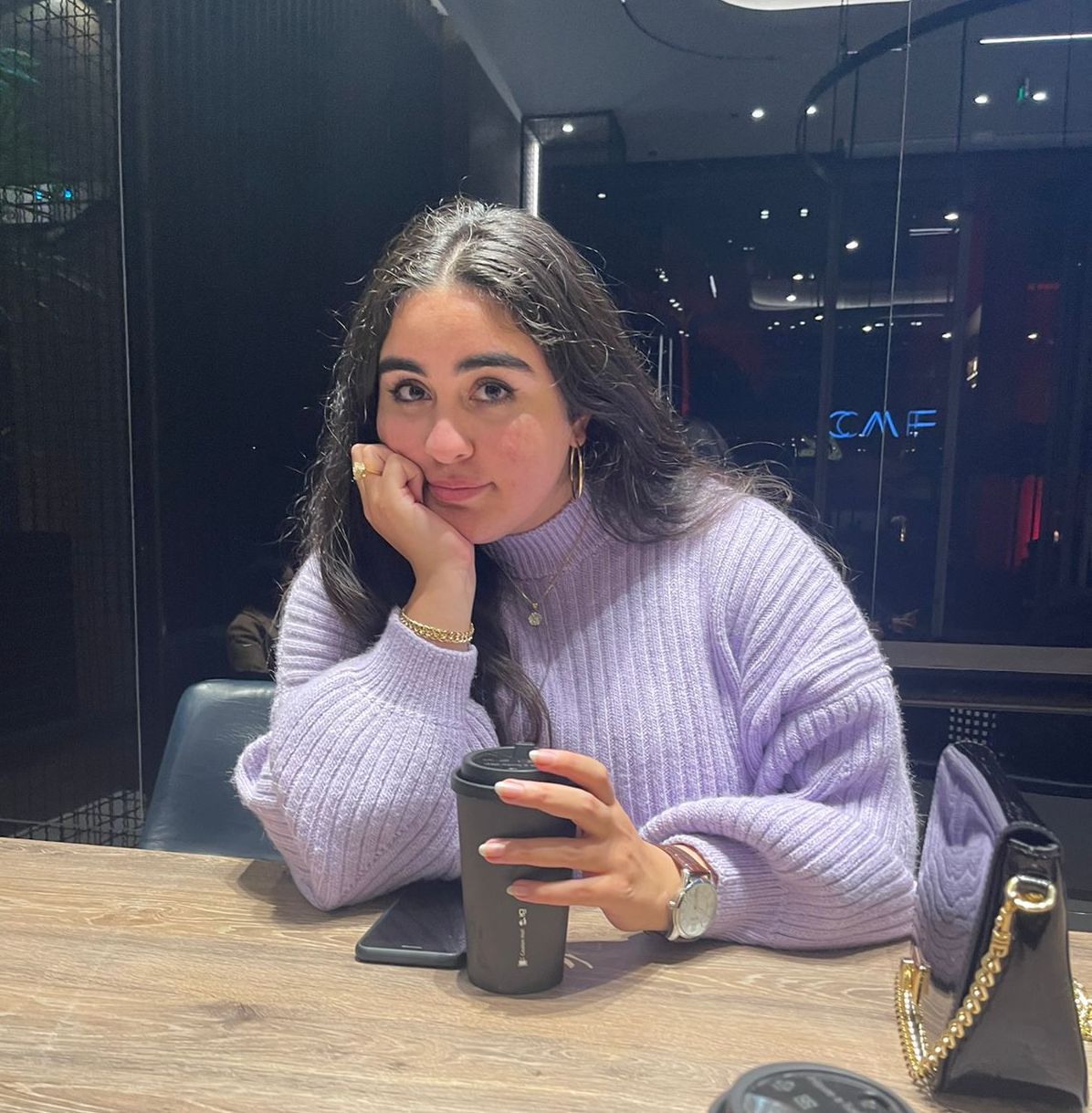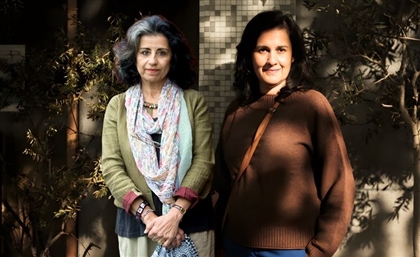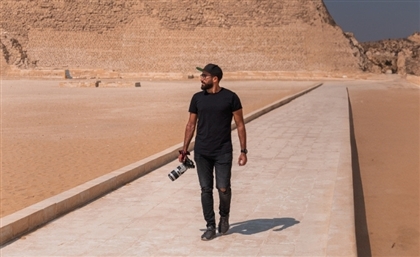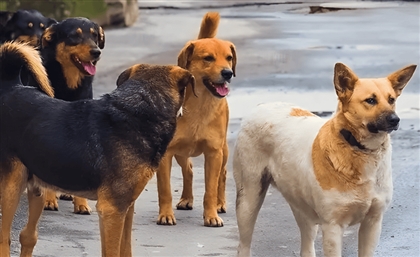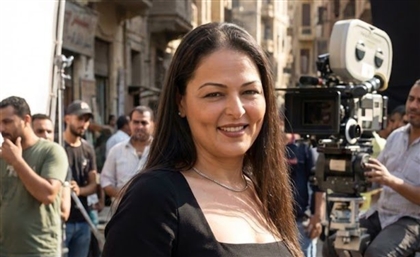'My People Shall Live' & Other Books to Read on Palestine
Made in tribute to martyred Palestinian intellectual, Bassel al-Araj, this list is an invitation to read, think and engage with Palestinian history, culture and life.
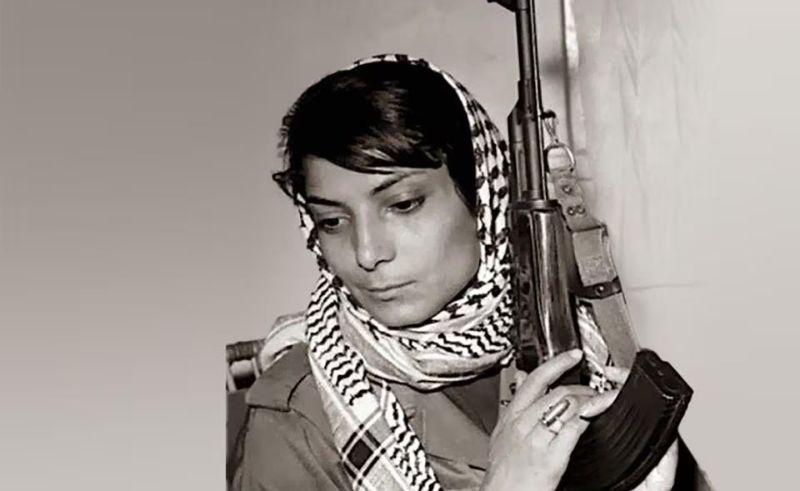
As the West continues to push forward pro-Israel propaganda, it is crucial to arm ourselves with the knowledge to produce a counternarrative that represents Palestine. This list is an invitation to read, think and engage with Palestinian history, culture and life.
The Ethnic Cleansing of Palestine
Ilan Pappe
'The Ethnic Cleansing of Palestine,' written by historian Ilan Pappé, examines the events surrounding the 1948 Nakba and the forced displacement of hundreds of thousands of Palestinians from their homes. Pappé seeks to shift the scholarly and public understanding of the 1948 events from a paradigm of war to one of ethnic cleansing. The book highlights the implementation of this ethnic cleansing through the systematic expulsion of approximately 500 villages. By challenging the prevailing narrative, Pappé's work sparked intense debate among historians and scholars. 'The Ethnic Cleansing of Palestine' presents a revisionist interpretation of the events of 1948, emphasising the intentional displacement of Palestinians as a fundamental aspect of the creation of the apartheid state of Israel.
The Palestinians: From Peasants to Revolutionaries
Rosemary Sayigh
Rosemary Sayigh's 'The Palestinians: From Peasants to Revolutionaries' is a seminal work of radical history that delves into the story of the Palestinian people.Sayigh's book provides a deeply moving and grassroots account of their journey, drawing on extensive interviews conducted with Palestinians living in refugee camps. The book gives voice to the Palestinians themselves, allowing them to tell their stories in their own words. Through these personal narratives, Sayigh explores the traumatic experiences of the Palestinians, including the Nakba and their forced displacement from their homeland. The accounts shed light on the economic marginalisation, social and psychological effects of uprooting, and the political oppression faced by the Palestinian people.
The Hundred Years' War on Palestine
Rashid Khalidi
In his thought-provoking book, 'The Hundred Years' War on Palestine', Rashid Khalidi, a historian and Professor of Modern Arab Studies at Columbia University, offers a critical analysis of the Zionist movement’s claim to Palestine spanning from 1917 to 2017. The author describes this period as a manifestation of late settler colonialism and an instrument of British and later American imperialism. Khalidi examines six significant episodes that he characterises as 'declarations of war' against the Palestinian people. He clarifies that the struggle in Palestine should not be seen as a conflict between two equal national movements vying for the same land, but rather as a colonial war waged against the indigenous population. Various parties, driven by their own interests, sought to forcibly displace Palestinians from their homeland. The author draws upon diverse sources, employing traditional historical methods while incorporating perspectives from family archives, generational stories, and his own experiences as an activist and negotiator in Palestinian and settler Israeli circles. This multifaceted approach provides a comprehensive view of the complex dynamics at play in the Palestinian struggle.
I Saw Ramallah
Mourid Barghouti
'I Saw Ramallah' is a deeply personal and poignant autobiographical work by Mourid Barghouti, a renowned Palestinian writer and poet. Originally written in Arabic, this book offers a profound exploration of exile, displacement, and the longing for home. The English translation, skillfully rendered by Egyptian professor, scholar, author and activist, Ahdaf Soueif, allows a wider audience to experience Barghouti's evocative storytelling. The narrative takes us on a journey through Barghouti's life, beginning in 1966 when he leaves his homeland to pursue higher education in Cairo, Egypt. However, upon his return in 1967, following the Six-Day War, Barghouti finds himself barred from entering Palestine, his cherished homeland. Like countless others, he becomes a part of the diaspora, forced to build a life abroad. For three long decades, Barghouti grapples with the pain of separation and the yearning to set foot in Ramallah once more. Finally, after enduring a relentless struggle, he is granted permission to return to his hometown. The book chronicles his long-awaited homecoming and the complex emotions that accompany it.
The Woman from Tantoura
Radwa Ashour
'Woman from Tantoura,' written by acclaimed Egyptian author, professor and activist, Radwa Ashour, is a moving and poignant novel that delves into the experiences of a Palestinian woman named Ruqayya. The story is set against the backdrop of the Nakba, the catastrophic events of 1948 that led to the displacement and dispossession of hundreds of thousands of Palestinians. Ruqayya was only 13 years old when the Nakba reached her village of Tantoura in Palestine. The massacre and destruction of her village forced her to leave her home, severing her ties to everything she had ever known. As an old woman reflecting on her life in exile, Ruqayya takes readers on a journey through her experiences in Syria, Lebanon, and the Gulf, as well as the profound impact these displacements have had on her and her family. Through Ruqayya's perspective, Ashour captures the depth of her love for her land, her family, and her people. The novel portrays her resilience and determination to preserve her identity and heritage despite the hardships she endures.
My People Shall Live: Autobiography of a Revolutionary as Told to George Hajjar
Leila Khaled & George Hajjar
Leila Khaled's autobiography offers a compelling look into the life of a revolutionary figure. One of the most evident lessons from this book is the cycle of violence begetting more violence. The Holocaust subjected the Jewish population to violence, leading to the use of violence against Palestinians. In response, Palestinians, like Leila Khaled, saw armed struggle as the path to regaining their homeland and freedom. Notably, Leila Khaled, at the age of 20, believed in the necessity of armed struggle but did not advocate for the extermination of Israelis or their expulsion into the sea. Her vision extended beyond the conflict, envisioning a democratic state in Palestine where Jews and native Palestinians coexist as equals once victory is achieved.
Dreaming of Freedom - Palestinian Child Prisoners Speak
Norma Hashim
‘Dreaming of Freedom’ provides a comprehensive examination of Israel's military detention of Palestinian children within the broader context of the Israeli occupation and the Palestinian resistance movement. This book offers a deep understanding of the lives of these children, whose confrontations with heavily-armed soldiers, formidable barriers, and imposing tanks have served as a powerful source of inspiration for countless individuals.
Born Palestinian, Born Black
Suheir Hammad
Suheir Hammad stands as a resolute advocate for the marginalised, and her poetry collection, titled ‘Born Palestinian, Born Black’ provides a window into her world - a realm that is unfiltered, urban, and brimming with potent expression. With the poetic cadence of an activist, a feminist, and a woman marked by an unjust world, Hammad fortifies her words to confront struggles most of us have yet to fathom. Within the pages of this book, we embark on an honour-laden journey, marching alongside Ms. Hammad as she addresses the voiceless atrocities that have spurred her into action. While this unique perspective has matured over a decade, Hammad's youthful rendering maintains a striking relevance in today's complex landscape. She wields an unapologetic openness, displaying a blend of vulnerable pride and unwavering determination. Her words do not tiptoe lightly; they compel us to confront the harsh realities we often avert our gaze from, offering a profound glimpse into Hammad's deeply evocative humanity.
The Secret Life of Saeed: The Pessoptimist
Emile Habibi
The Secret Life of Saeed: The Pessoptimist narrates the transformation of a Palestinian man who becomes an Israeli citizen, interweaving elements of reality and imagination, tragedy and humour. At the heart of the story is Saeed, a hapless figure, the quintessential fool, whose journey encapsulates the complexities of existence for Arabs living in Israel, marked by aggression and resistance, terror and heroism, reason and loyalty. Saeed, the story's comedic hero, operates as an informant for Israel. His foolishness, unvarnished honesty, and timidity render him more a victim of circumstances than a true villain. Through a series of tragicomic episodes, Saeed undergoes a gradual transformation. From being a disaster-prone, easily manipulated collaborator, he evolves into a Palestinian figure. Though not a hero in the conventional sense, he becomes a simple man driven by the desire for survival and, just maybe, a shot at happiness.
Palestine’s Children: Return to Haifa & Other Stories
Ghassan Kanafani
In the words of Ghassan Kanafani, politics and the novel are inseparable. Fadl al-Naqib astutely observed that Kanafani initially authored the Palestinian narrative, only to become a character within it. His literary works provide a gateway to the Palestinian experience, offering poignant insights into the enduring conflict that has afflicted the Middle East's people for over a century. Within the pages of ‘Palestine's Children’, each story revolves around a child, a young soul ensnared by the tumultuous political landscape. Yet, these children, despite their victimisation, remain integral to the relentless pursuit of a brighter tomorrow. As in Kanafani's other literary works, these narratives delve into the imperative of reclaiming the past, the lost homeland, through decisive action.
Justice for Some: Law and the Question of Palestine
Noura Erakat
The issue of justice in the context of the Israel-Palestine conflict has traditionally been approached as a legal matter. However, judicial interventions have failed to resolve some of the most pressing challenges that this conflict poses. Israel's settlement expansion has continued unabated despite occupation laws, and the laws of war have, at times, allowed for violence and destruction in Gaza. The Oslo Accords’ once-promising two-state solution is now all but defunct. ‘Justice for Some’ presents the Palestinian struggle for freedom, examining it through the lens of international law's influence and control. Author Noura Erakat delves into pivotal moments in history, from the Balfour Declaration of 1917 to contemporary conflicts in Gaza, to illustrate how the strategic manipulation of law has shaped the current state of affairs. Over the past century, international law has favoured Israel's interests over those of the Palestinians, however, Erakat contends that this outcome was not predetermined.
Through its exploration of the potential and pitfalls of international law, ‘Justice for Some’ calls for renewed engagement and attention to the Question of Palestine.
Rifqa
Mohamed El Kurd
‘Rifqa’, Mohammed El-Kurd's debut poetry collection, reverberates with the tradition of Palestinian Resistance Literature, evoking the spirit of Ghassan Kanafani. Within its pages, El-Kurd unveils his own narrative, one marked by dispossession, set against the backdrop of Sheikh Jarrah - a neighbourhood in Jerusalem, Palestine. This area, home to a population of refugees, teeters on the precipice of homelessness, a consequence of actions by the Israeli government and US-based settler organisations. The book derives its name from the author's late grandmother, a symbol of the countless Palestinians who were compelled to flee from their homes in Haifa during the tumultuous founding of Israel. Rifqa challenges the notion that home takeovers and demolitions across historical Palestine merely echo the 1948 Nakba; instead, they constitute a relentless continuation of this tragic history - a legalised, ideology-fueled campaign of ethnic cleansing.
Gazza Weddings
Ibrahim Nasrallah
In the harsh grip of the Gaza Strip's oppressive occupation, twin sisters Randa and Lamis witness the unrelenting toll of violence. Death strikes indiscriminately, shrouding the sisters and their community in a haze of grief and uncertainty. But within this relentless cycle of tragedy, the circle of life persists. Randa, Lamis, and their dear friend Amna remain resolute in their pursuit of life's affirmation, not merely survival. They toil, engage in play, nurture love, serve as matchmakers, plan weddings, and cast their gaze upon the future. Marriages are celebrated, the laughter of children fills the air, and fresh hope takes root. Through eloquent and poetic prose, this novel illuminates the embodiment of courage and resilience, chronicling lives lived against formidable odds.
Salt Houses
Hala Alyan
As the eve of her daughter Alia's wedding approaches, Salma gazes into a cup of coffee dregs, unveiling glimpses of an uncertain future for Alia and her offspring. This premonition encompasses a life in constant flux, marked by travel and serendipity. Though she keeps these foresights to herself that day, their realisation is imminent when the family faces upheaval following the Six-Day War of 1967. Salma is compelled to abandon her Nablus home, while Alia's brother becomes entangled in a politically charged world from which escape proves elusive. Alia and her gentle husband resettle in Kuwait City, where they reluctantly construct a new life with their three children.
However, the invasion of Kuwait by Saddam Hussein in 1990 upends their existence once more, leading to the loss of their home, land, and the familiar narrative they cherished. They scatter to destinations like Beirut, Paris, Boston, and beyond. Alia's children, in turn, forge new families, navigating the complex terrain of assimilation in foreign cities. ‘Salt Houses’ is a lyrical and heartrending debut novel that offers a fresh perspective on a longstanding conflict, challenging and humanising it. It compels us to confront the most devastating truth of all: the inability to return home.
Mornings in Jenin
Susan Abulhawa
Expelled from their ancestral village of Ein Hod in 1948, as the newly formed state of Israel took shape, the Abulhejas found themselves relocated to the Jenin refugee camp. The family patriarch, severed from his beloved olive groves, succumbs to a broken heart, while his eldest son starts a family, only to fall victim to an Israeli bullet. Meanwhile, the grandchildren grapple with tragedy, striving towards freedom, peace, and a place to call home.
This is the Palestinian narrative, spanning four generations of a single family. The fragility of existence within the refugee camps intensifies the experience of life itself. It's a tale of love and loss, of childhood, marriage, parenthood, and ultimately, the imperative of passing her history on to her daughter, preserving the greatest love she has ever known. The poignant humanity within the pages of ‘Mornings in Jenin’ compels us to reexamine one of the defining political conflicts of our era.
- Previous Article Italian-Palestinian Duo No Input Debuts Eponymous Electro EP
- Next Article Egyptian Embassies Around the World
Trending This Week
-
Dec 12, 2025







